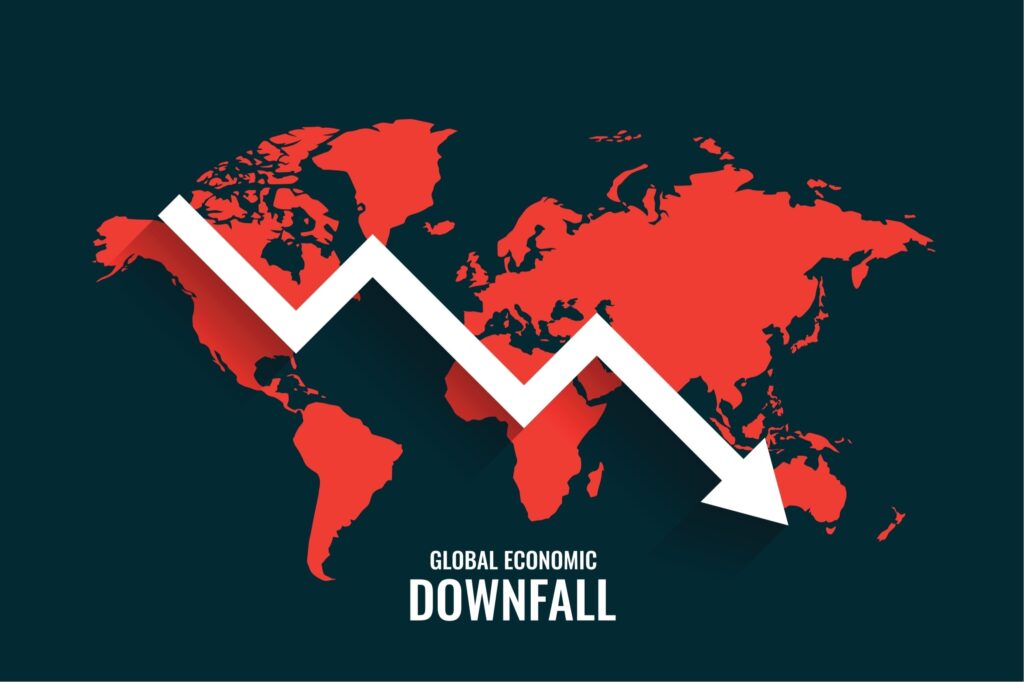Global economic crises don’t happen overnight. They are often the result of multiple factors converging to create a perfect storm. Understanding these key causes can help us identify early warning signs and better prepare for potential downturns. Here are the primary causes of global economic crises:
1. Financial Market Instability
Financial markets are the backbone of the global economy, but they can also be its downfall. Speculative bubbles, where asset prices rise far beyond their real value, eventually burst, leading to market crashes. The lack of sufficient regulation and oversight can allow risky financial practices to go unchecked, further amplifying economic problems.
2. High Debt Levels
Excessive debt is a major contributor to economic instability. Governments, corporations, and households that accumulate too much debt are at risk of default, which can lead to broader financial crises. The 2008 global financial crisis, for example, was largely triggered by excessive borrowing and lending in the housing market.
3. Trade Imbalances
Large trade deficits or surpluses can create imbalances in the global economy. Countries with significant deficits may struggle to sustain their economies, while those with surpluses may face pressure from trading partners. These imbalances can lead to protectionist measures, trade wars, and strained international relations, further destabilizing the global economy.
4. Geopolitical Conflicts
Geopolitical tensions, such as wars, sanctions, and political instability, can disrupt trade, investment, and energy supplies. Countries embroiled in conflict often face economic sanctions, causing their economies to shrink. In addition, conflicts can lead to fluctuations in oil prices, which affect global markets and trigger economic slowdowns.
5. Natural Disasters and Pandemics
Natural disasters and pandemics are unpredictable events that can wreak havoc on the global economy. COVID-19, for instance, led to widespread lockdowns, halting economic activity in many sectors and causing global supply chains to collapse. Such events expose vulnerabilities in the economy and emphasize the need for disaster preparedness.
6. Inflation and Hyperinflation
When inflation spirals out of control, it leads to hyperinflation, where the value of money declines rapidly. This erodes purchasing power, reduces consumer confidence, and creates uncertainty in the economy. Countries facing hyperinflation often experience severe recessions, as was the case in Zimbabwe and Venezuela.

7. Resource Scarcity
Shortages of essential resources such as oil, food, and water can cause prices to skyrocket, leading to inflation and economic stress. When resources become scarce, countries may resort to hoarding or protectionist policies, which can exacerbate global shortages and lead to economic crises.
8. Poor Policy Decisions
Poor monetary and fiscal policy decisions by governments can worsen economic conditions. Mismanagement, such as raising interest rates too quickly or increasing government spending without proper planning, can lead to inflation, budget deficits, and economic instability.
Global economic crises are complex and multifaceted. By understanding the key causes, we can better anticipate and address potential threats to economic stability. While it’s impossible to eliminate all risks, greater awareness and proactive measures can help mitigate the impact of future crises.